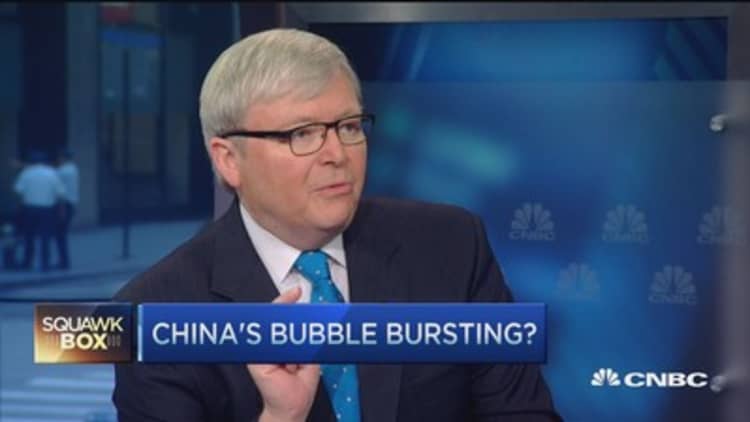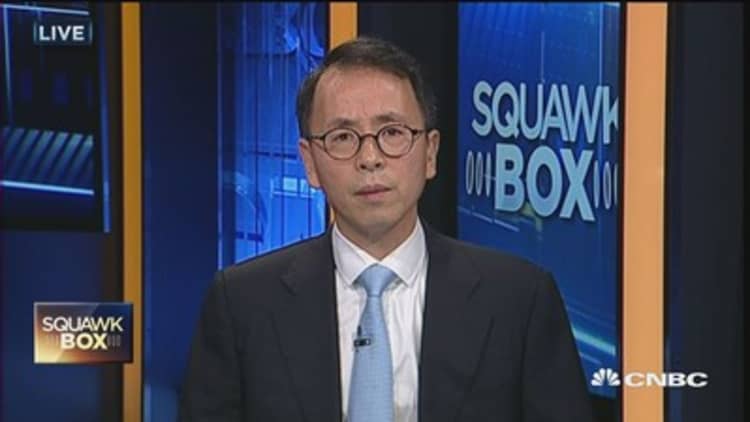
The recent interventions by China to try to halt its stock market meltdown are significant but not unprecedented, former Australian Prime Minister Kevin Rudd said Friday, pointing to similar moves in Japan and Hong Kong in the 1990s.
The financial markets in China are getting their first dose of real volatility, and regulators there are learning how to deal with it real-time, Rudd told CNBC's "Squawk Box."
"[China's] stock markets are not mature. Financial markets are not mature," he said. "And as a result, I think regulators are having in many cases their first burst of reality of how you deal with this sort of volatility."
Chinese stocks rebounded for a second session Friday, with the Shanghai composite adding 4.5 percent after Thursday's gain of nearly 6 percent. The market has fallen 24 percent since hitting seven-year highs in mid-June, although in the past year, it's up
90 percent in the past 12 months. After this week's crash, the government made a series of moves to quell the panic—including banning shareholders with large stakes in listed firms from selling, suspending initial public offerings and relaxing margin lending and collateral rules.
"This [intervention] is not unique in the annals of capitalism, even with Chinese characteristics," said Rudd, who is president of the think tank Asia Society Policy Institute. "Remember, it is a communist country, which says publicly that it runs a one-party state, which will intervene in the economy when it so chooses."
When thinking about the China's stock market and economy, Rudd said one has little bearing on the other.
"The role of the stock market there cannot be faintly equated with the significance of the New York Stock Exchange to the overall robustness of the U.S. economy," said Rudd, whose country has close trading ties with China.

Andy Xie, formerly Morgan Stanley's chief Asia-Pacific economist, disagrees with the notion of a Chinese stock market and economy disconnect.
"The market came down because it was not supported by the economic fundamentals. China's economy has been slowing down for several years," he told CNBC.
Chinese stocks surged over the past year on the hope that China's economy would strengthen again, said Xie, now a Shanghai-based independent economist. "If the government wants to reverse the trend, it has to do serious economic reforms."
John Rutledge, chief investment strategist at Safanad, told CNBC he's not optimistic that Chinese stocks have bottomed—despite the rebound over the past two days.
"I've never seen a bubble pop halfway," he said. "They're throwing everything but the kitchen sink at this so far. I think this thing could do a lot further."


